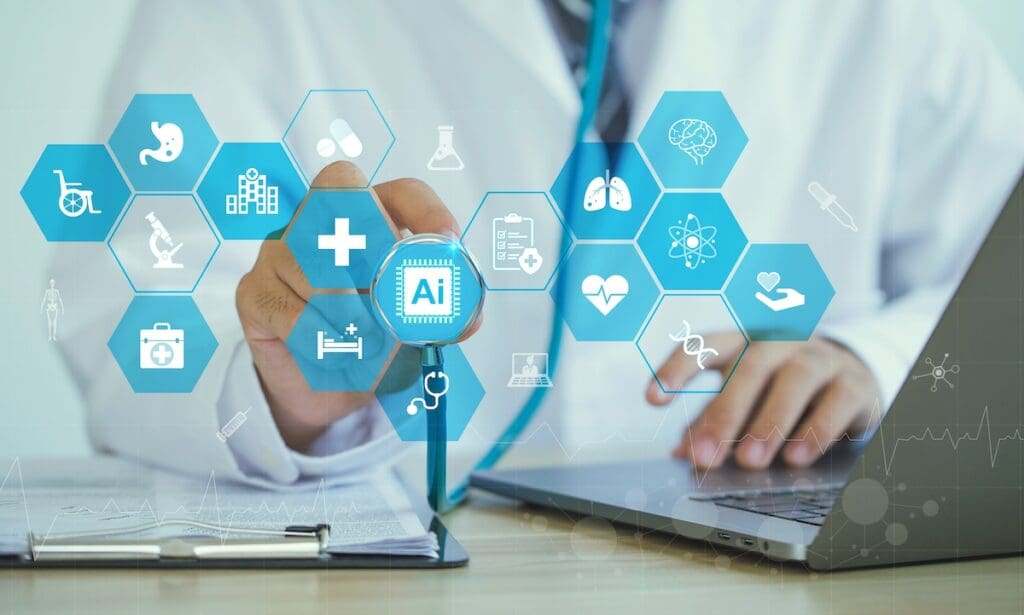California Governor Gavin Newsom signed Assembly Bill 3030 (AB 3030), taking an important step toward regulating the use of generative artificial intelligence (GenAI) in healthcare settings. The new law, known as the Artificial Intelligence in Health Services Bill, will come into effect on January 1, 2025 and aims to increase transparency for patients while addressing potential risks associated with AI in clinical communications. The purpose is
AB 3030 aims to regulate how healthcare providers, including hospitals, clinics, and private medical practices, use AI to generate patient communications related to clinical information. According to the new law, any AI-generated communication, whether written, verbal or visual, must include a clear disclaimer informing patients that the content was created by AI. Additionally, these communications should provide patients with clear instructions on how to contact their human health care provider for further information or clarification.
This bill is part of a broader push by the California Legislature to reduce risks associated with GenAI technology, especially as AI systems become increasingly integrated into medical settings. AB 3030 is designed to ensure that patients are fully aware of when AI will be used in their care and have a clear path to seek human interaction when necessary, according to a statement from the California Legislature. has been done.
While the law introduces new safeguards, it also clarifies that AI-generated communications reviewed and approved by a licensed medical professional are exempt from disclosure requirements. This exception is supported by various medical associations, who argue that overly restrictive rules could impede the use of AI to streamline clinical processes, such as time-consuming documentation for healthcare providers. expressed concern.
This law does not apply to AI-generated communications regarding administrative matters such as scheduling reservations or billing. Its focus is directly on patient clinical information where mistakes can have more serious consequences. This means that AI tools can be used for non-clinical work without strict disclosure requirements.
Read more: UnitedHealth and Amedisys prepare for major antitrust meeting with Justice Department
The law defines GenAI as “artificial intelligence capable of generating derived synthetic content,” and specifically targets AI systems that create original content, such as large-scale language models (LLMs) that generate written text. Masu. By focusing on synthetic content, this legislation aims to address the unique risks associated with AI-generated content, which can introduce inaccuracies and bias into clinical communications.
AB 3030 also introduces liability measures for health care providers who violate the law. Physicians who violate the new regulations will be subject to oversight by the California State Medical Board or the California Osteopathic Medical Board. Medical facilities and clinics may be subject to enforcement under California’s Health and Safety Act.
With the law set to take effect, California regulators are emphasizing the need to balance the benefits and risks of AI in healthcare. According to a statement from the California Senate, AI tools can reduce administrative burden on health care workers and give them more time to care for patients. However, there are concerns about the potential for AI to introduce errors, such as “illusions” where AI generates plausible but incorrect information, and biases resulting from training on incomplete or historically inaccurate data. there is.
Although AB 3030 does not directly regulate the accuracy of AI-generated clinical content, it seeks to provide transparency by ensuring patients are informed about the use of AI in their care. This is consistent with broader efforts at the federal level, such as the White House’s AI Bill of Rights blueprint, which emphasizes the right to know when automated systems are being used in a way that impacts an individual’s life.
California is at the forefront of AI regulation in healthcare, and healthcare providers in the state are now obligated to adapt to these new requirements. Experts say healthcare facilities can prepare for AB 3030 implementation by updating communication systems, ensuring AI-generated content is properly flagged, and strengthening oversight processes to maintain quality of care. It is suggested that we should start. This proactive approach helps reduce the risks of relying on AI while ensuring compliance with California’s strict new rules.
Source: Nat Law Review



